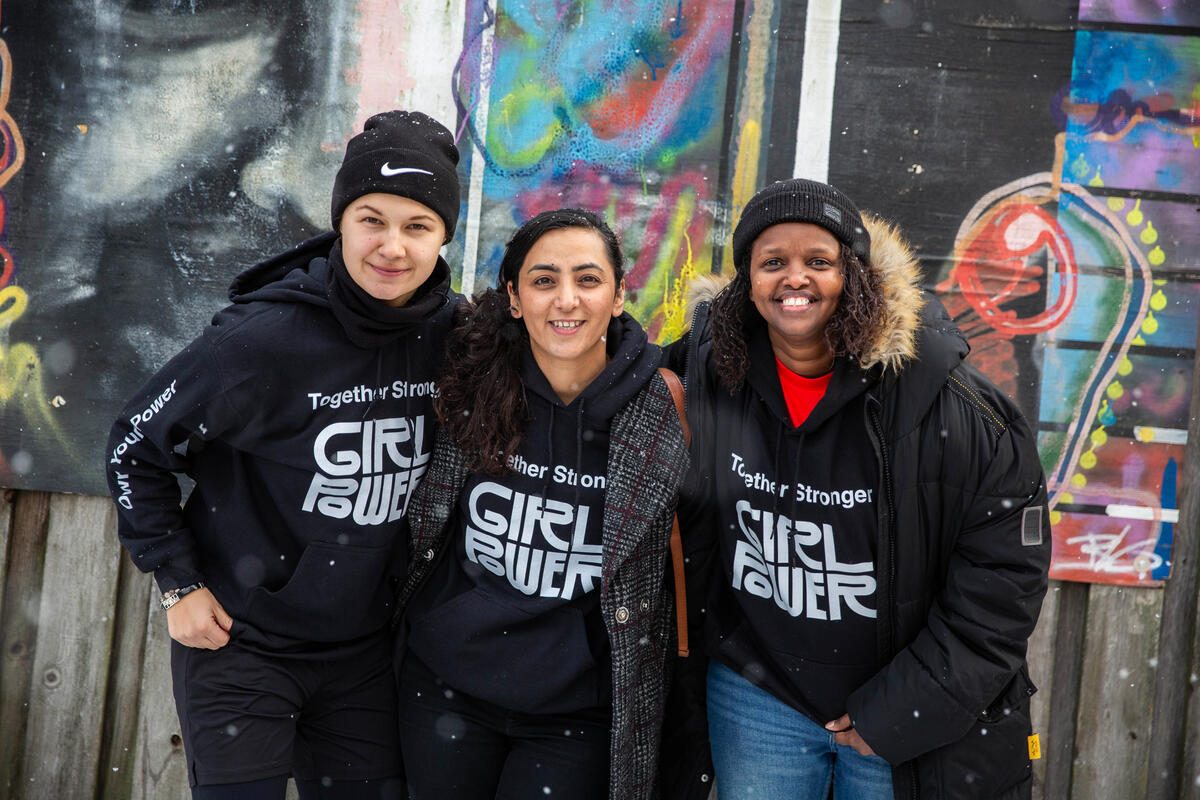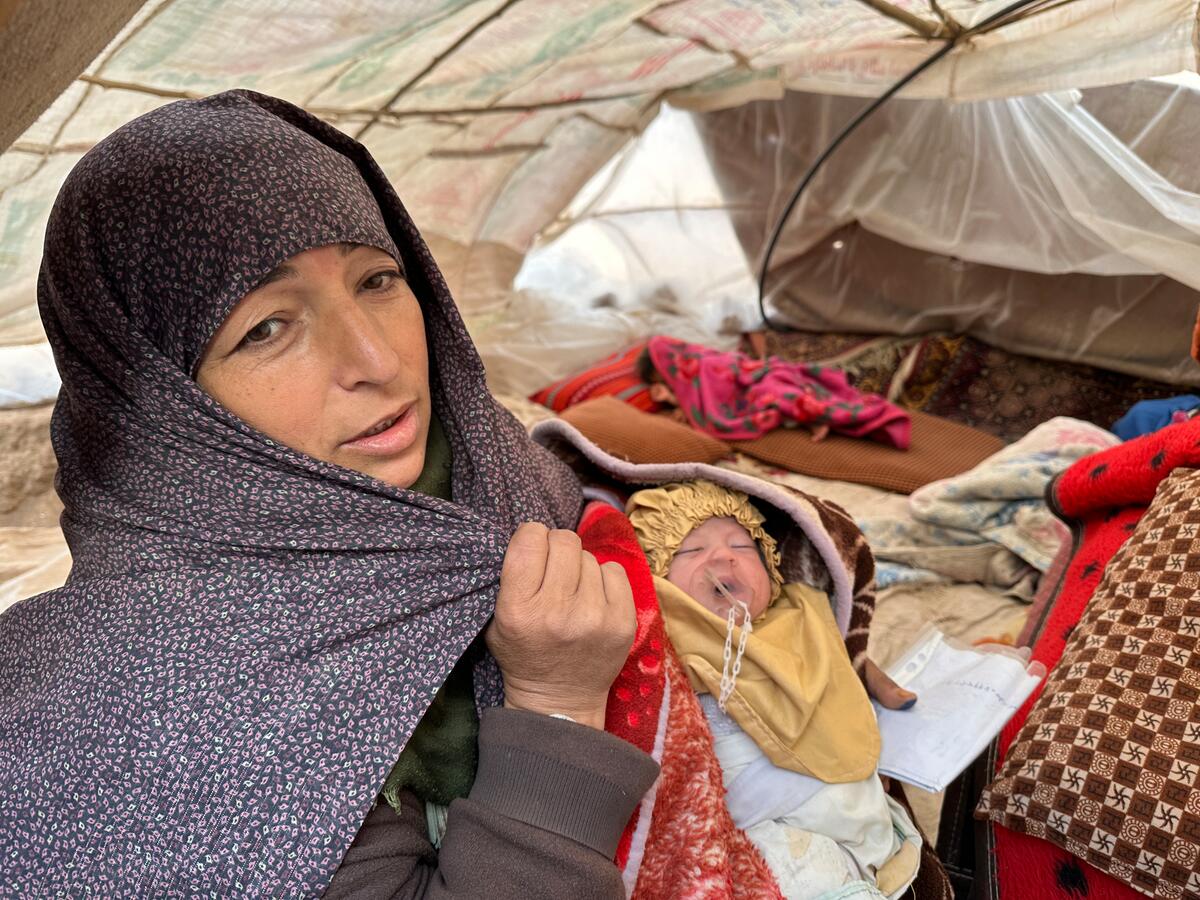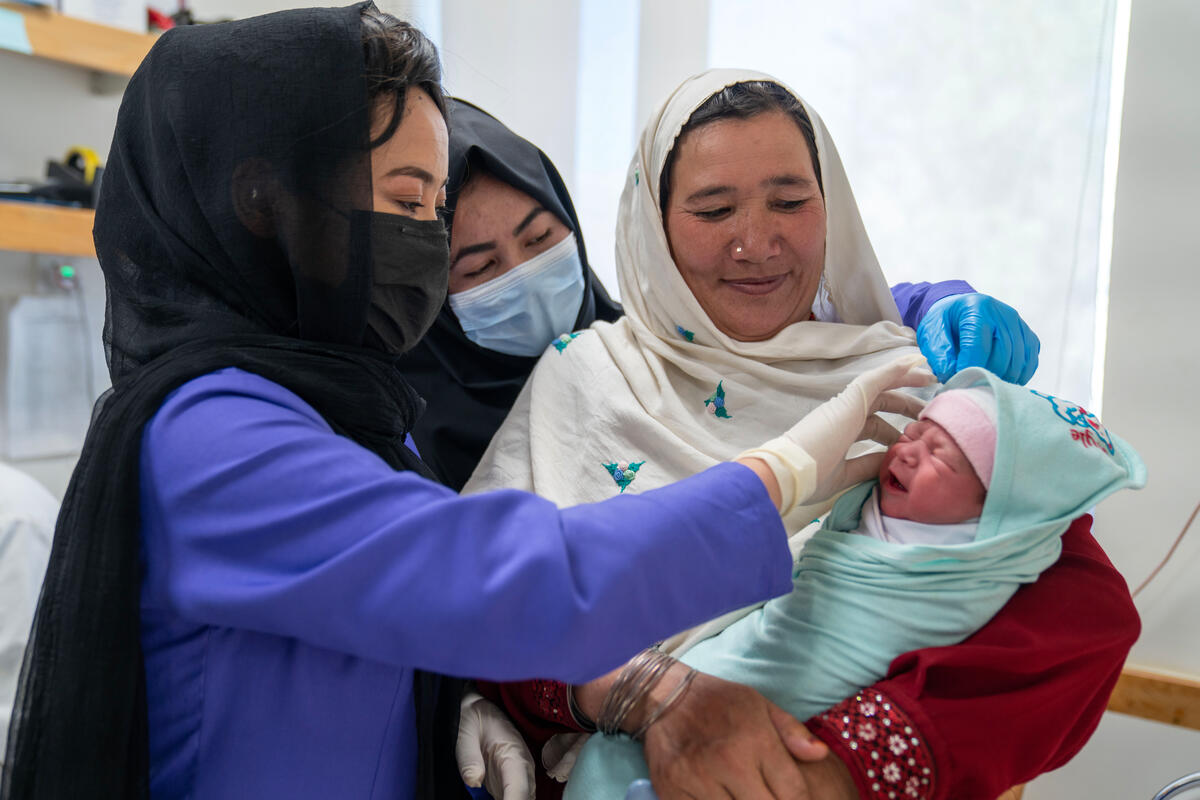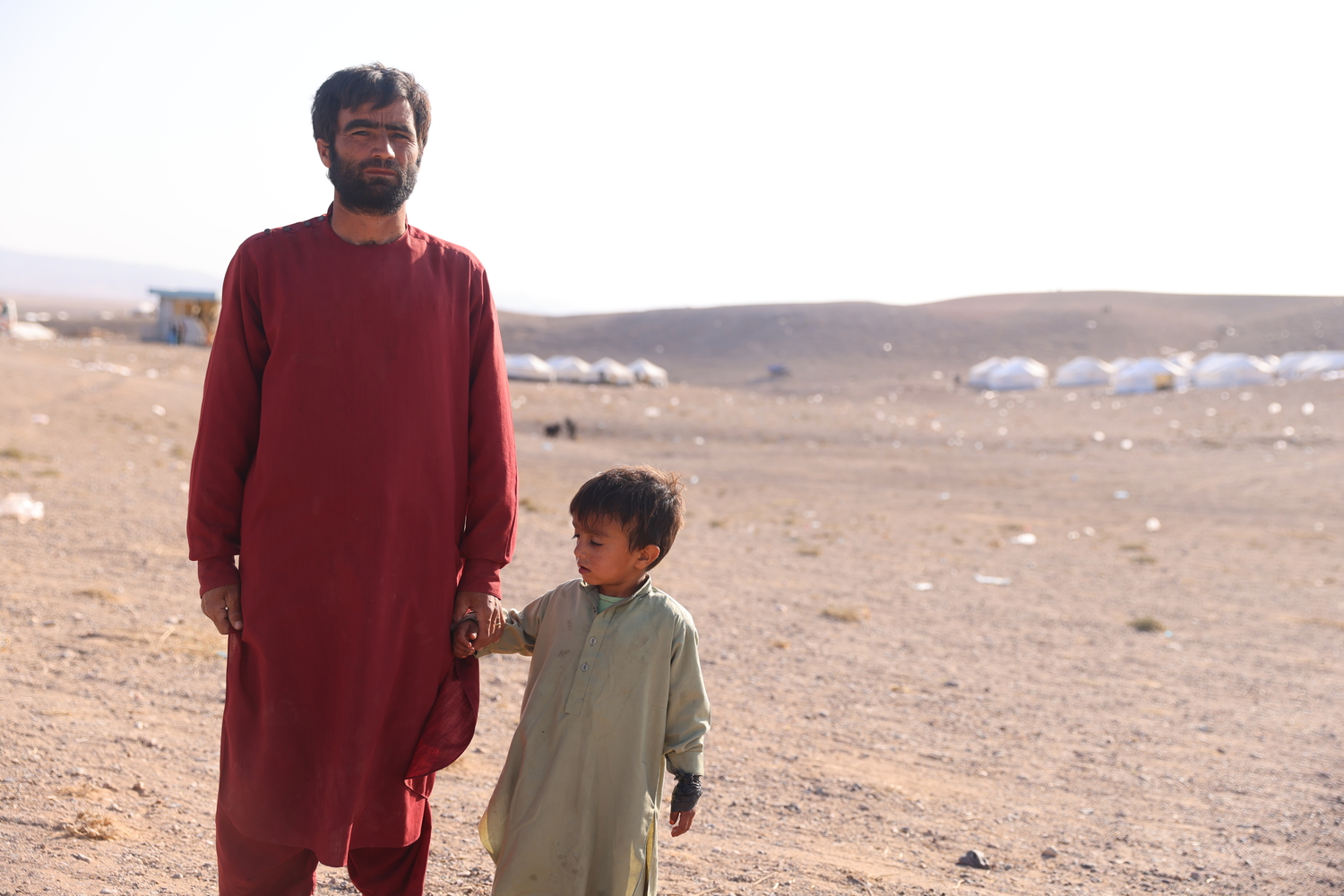Afghanistan Humanitarian Update No. 31
Afghanistan Humanitarian Update No. 31
At a Glance:
- Pakistan government gives green light to open new refugee camps
- Lubbers urges more focus on humanitarian needs
- 350 Afghans allegedly deported from Iran over past few days
- Third Swiss relief flight arrives in Turkmenistan
Pakistan government gives green light to open camps
Nearly 3,000 Afghans currently residing in the Killi Faizo transit camp on the Pakistan-Afghan border in Chaman in southern Baluchistan province are scheduled to be transferred to a new site at Roghani beginning this weekend.
The decision to move the Afghans follows a meeting in Islamabad on Wednesday between Pakistan's minister responsible for refugee affairs, Abbas Sarfraz Khan, and UNHCR, the World Food Programme and senior national and provincial government officials. The meeting ended with plans to implement a number of specific actions agreed last week by Pakistan's President Pervez Musharraf and UN High Commissioner for Refugees Ruud Lubbers.
The participants agreed that a total of 11 new sites are ready in Pakistan and can be opened for use. Three of the sites are in Baluchistan and the other eight in North-West Frontier Province.
The Baluchistan sites - Roghani, Tor Tangi and Dara - are all in the vicinity of the main Chaman border crossing and have between them a maximum capacity of some 70,000 refugees. Since yesterday's meeting, it has been agreed that the almost 3,000 Afghans currently residing in the Killi Faizo transit camp next to the border at Chaman, will be transferred to the new Roghani camp site at the weekend. UNHCR and the Commissioner for Afghan Refugees (CAR) - Pakistan's local government agency with responsibility for refugees - will begin by shifting 50 families (about 250 people) in a convoy of buses and trucks on the first day.
Two other categories of Afghan refugees can also now be admitted to the new sites in the light of yesterday's agreement. These are the so-called "invisible" refugees - some 135,000 in all - who have entered Pakistan since September 11. Many of them have been living a nebulous, and in some cases precarious, existence, either in old refugee camps in Pakistan or in cities such as Peshawar and Quetta. It will be a great deal easier to give these refugees proper assistance in camps than in their current situation, mixed in with a general urban population.
The third category to benefit from Wednesday's agreement are the tens of thousands of Afghans living in the controversial New Jalozai camp near Peshawar, who can now also be relocated to the new sites near the border. While many of these Afghans were already in Jalozai before September 11, they have been joined by others arriving since. In general, their living conditions have been highly unsatisfactory. Although a screening agreement had been worked out between the Pakistan government and UNHCR to resolve the Jalozai situation, this was interrupted in the immediate aftermath of September 11. After Wednesday's meeting, UNHCR officials said they were pleased to have another chance to resolve the situation of the Jalozai Afghans.
In the North-West Frontier Province, the transfer of the refugees in and around Peshawar is scheduled to begin next week. Refugees from the makeshift Jalozai site will be moved to Kotkai refugee site in Bajaur agency. A total of 500 refugees will be moved daily. UNHCR will provide transport while the government of Pakistan is expected to provide security for the convoys to cover the five-hour journey from Peshawar to Kotkai in Bajaur agency.
UNHCR and its partners are continuing efforts to complete work at the remaining sites. We expect to have more sites in both Baluchistan and the North West Frontier province ready for use within the next two weeks.
Lubbers urges more focus on humanitarian needs
"As the military effort to fight terrorism enters its second month, we need to underscore the commitment made by coalition leaders to the Afghan people that this war is not against them, and that the humanitarian effort will remain a priority," UN High Commissioner for Refugees Ruud Lubbers said today in a statement issued in Geneva.
"Hundreds of thousands of people have fled their homes, but continuing insecurity is hampering humanitarian efforts to help them inside Afghanistan. At the same time, they are unable to seek refuge outside because all neighbouring borders are officially closed. As a result, many desperate Afghans have nowhere to turn," Lubbers said.
While recognizing the enormous refugee burden already shouldered by countries in the region, Lubbers again appealed to neighbouring states to open their borders to those in need of temporary protection and assistance.
Lubbers said enormous planning, effort and resources are being devoted to the war against terrorism, but many urgent humanitarian needs remain to be addressed by the international community.
"The fight against terrorism is necessary," Lubbers concluded. "But there is also a concomitant international duty to help the Afghan people - both inside and outside - and to make good on the promises made to them at the beginning of this conflict that they are not the target of this war and will not be forgotten."
350 Afghans allegedly deported from Iran
More than 100 Afghans were reportedly deported from Iran on Wednesday, taking the total said to have been pushed back inside Afghanistan to some 350 over the past few days - mainly through the north-east border town of Dogharoun in Khorasan Province. Among the recent deportees were three families of eleven people, mainly women and children, who had crossed the border at Dogharoun late last week but were sent back into Afghanistan early Sunday. UNHCR is worried that there may be people of concern to UNHCR among the large group of deportees.
On Tuesday, UNHCR's Chief of Mission in Tehran met with senior government officials in Iran's Ministry of Home Affairs and raised UNHCR's concerns about the latest reports. Ministry officials said they would look into the matter. The ministry last month reassured UNHCR that deportation of Afghans would be discontinued.
The situation in the two camps for displaced people inside Afghanistan's southern Nimroz province, close to the border with Iran is said to be more or less unchanged, with 5,000-6,000 people in Makaki camp and a further I,000 or more people camped out in the open nearby. At the second camp in Nimroz - Mile 46 - which contains some 700 people, a MSF survey revealed that 10 percent of children under the age of five are malnourished.
Third Swiss relief flight arrives in Turkmenistan
A third plane carrying 449 tents, 6,000 blankets and 100 kerosene heaters donated by the Swiss Agency for Development and Cooperation (SADC) landed in Turkmenabat on Wednesday. Eight additional trucks with Swiss humanitarian aid are also expected to reach Turkmenistan in the near future. A UNHCR-coordinated interagency mission, involving seven UN agencies and NGOs, left Thursday for the provinces of Lebap and Mary on the border with Afghanistan to assess what different agencies could do to assist the government should there be a sudden refugee influx.








